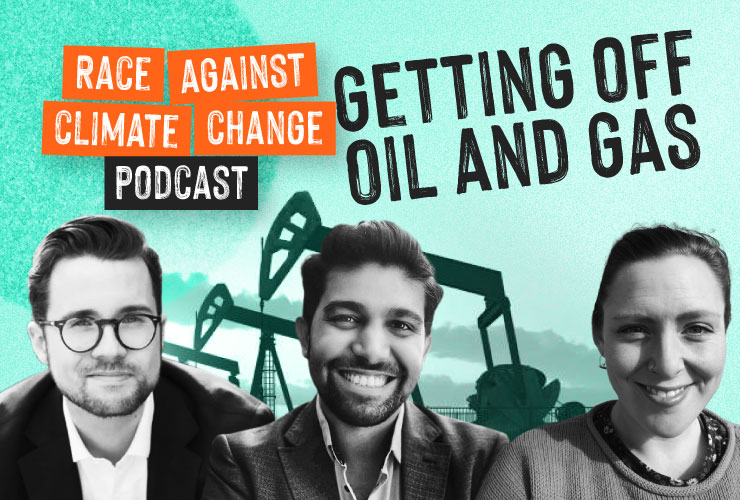
On Nov. 1, Abby Herd helped lead a group of Simon Fraser University students over the finish line as they won an eight-year campaign to persuade the administration to divest from fossil fuels by 2025. Only Lakehead University has a bolder target of 2023. You might think it would have taken some arm twisting, but this 21-year-old global environmental systems student just won Environment Canada’s prized Collaborator Award for her teamwork.
This piece is part of a series of profiles highlighting young people across the country who are addressing the climate crisis. These extraordinary humans give me hope. I write these stories to pay it forward.
Tell us about the campaign.
Since 2013, students have been working to convince the SFU administration to stop investing in fossil fuels. The campaign evolved over time as awareness among decision-makers, students and faculty grew. The handful of students who began this campaign had a hard time being taken seriously and we applaud and thank them for their courage.
We are part of an international network of student organizations working towards divestment. Other students told us which tactics succeeded and we took many of their ideas.
We educated thousands of students, inspiring them to sign petitions, attend rallies and meet with their faculties and administration. We asked the faculty to speak up against investments their employer might make that would spell the end of our species. We listened to the concerns of financial decision-makers and demonstrated the risks associated with investing in oil, gas and coal as more and more of these assets get stranded. We also drew media attention with press releases, interviews and direct actions, including the construction of a fake pipeline through the main campus. Community organizations chimed in with their concerns. We had help and support from Vancity Savings Credit Union, which is itself fossil-fuel free.
What do you think was the tipping point?
I think the administration had decided to divest but was not in any particular hurry to announce it. But when a group of students declared they planned to start a hunger strike on Nov. 1, the news became public. Everyone was relieved the hunger strike was not necessary.

What is next?
Our ongoing climate emergency campaign has six other demands. It is important that SFU publicly announce it has accepted there is a climate emergency. Once it does that, it should set science-based carbon reduction targets for its operations, join and support the campaign against the TMX pipeline, which will be built right underneath our main campus, join the University of British Columbia in funding a student-led climate hub to guide climate mitigation and adaptation on campus and provide funding for student climate activists to ensure this work is not restricted to only those students who can afford to work for free.
That’s an impressive list. What gives you hope?
Recently, after years of student pressure to divest, we are seeing results at the University of Toronto, Harvard, UVic and SFU. Our club, SFU350, has well over 100 registered members. A petition to the SFU board of governors to declare a climate emergency has well over 1,000 signatures. There is plenty of momentum.
There are so many youth-led groups all over the world working around the clock on climate justice. Eight years is not very long to have waited for this win given how little awareness there was at the time. Now the growth will be exponential.
How did you come to be engaged in this campaign?
My family spent a lot of time outside hiking, camping, skiing. I have an aunt working in global social justice and another who brings her work as an Anglican priest to climate change. Caring for the environment is part of who I am. In Grade 10, our environmental studies teacher at my high school in Delta, B.C., opened my eyes to how fossil fuel executives move into government and make the decisions. I was horrified and realized we do have to follow the money.
What makes your work hard?
Too many decision-makers dismiss young people as lacking relevant expertise.
Marie Haddad, who is the Simon Fraser Student Society’s vice-president of equity and sustainability, says change does not necessarily take time. It takes pressure. If words alone don’t work fast enough, we have to use other tactics. This has led us to be creative and engage in visual messaging, demonstrations and, if necessary, more drastic steps like civil disobedience and hunger strikes.
What advice might you have for other young people?
If enough people join, you do have the power to change institutions. We have seen it over and over again.
What would you like to say to older readers?
Share what you have learned. For example, I have learned a lot about making change from listening to union leaders. They might not have worked directly on climate change but the lessons are often directly applicable.
Faculty who have supported us have been so critical to our success. Some have made significant contributions, like Dr. Tim Takaro, who has been a tree-sitter engaged in civil disobedience against the TMX pipeline.
Work with us!







Comments